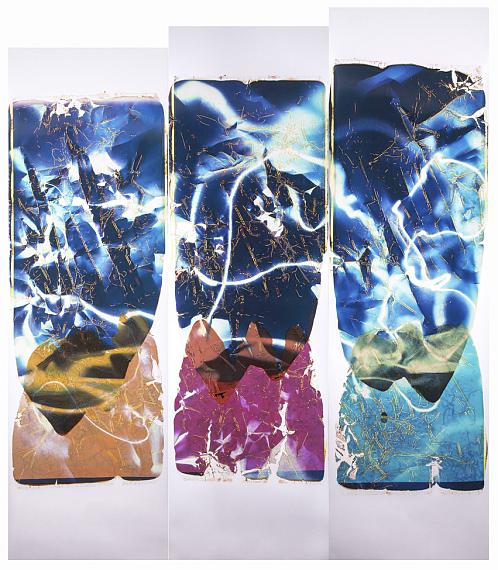
Crush & Pull with Penlight: Yellow, Magenta, Cyan, 2021 (triptych)
Polaroid 20 X 24 Color Positive (3) and Negative (3) Prints = 6 total prints
60 x 22 inches (each)
150 x 56 cm (each)
Unique
Ellen Carey »
Let There Be Light: the Black Swans of Ellen Carey
Exhibition: 5 May – 25 Jun 2022
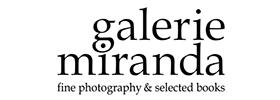
Galerie Miranda
21 rue du Château d’Eau
75010 Paris
+33(0)1-40 38 36 53
enquiries@galeriemiranda.com
www.galeriemiranda.com
Tue-Sat 12-19
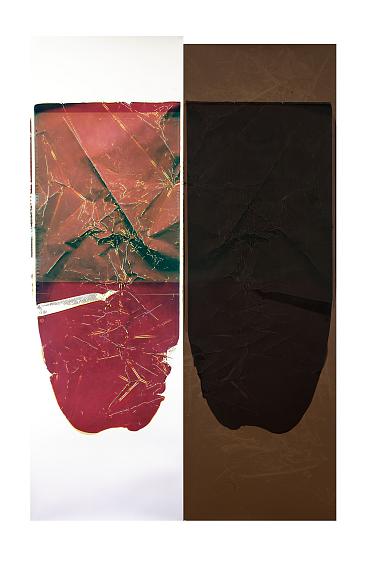
Crush & Pull, Red, 2019
Polaroid 20 x 24
60 x 22 inches each
Unique
Let There Be Light : the Black Swans of Ellen Carey
Exhibition: 5 May - 25 June 2022
A première for her new bodies of work, and the artist's second personal exhibition at Galerie Miranda, Ellen Carey’s handbook guides us through photography’s nearly two centuries’ arc of light, photogram, colour and Polaroid as seen in her constantly intersecting practices. For the 21st century, for Paris, the City of Light, Ellen Carey brings her arc into the future with Crush & Pull with Rollbacks & Penlights, a completely new 21st century photo-object from Polaroid’s monumental negative, which allows Carey, its camera operator, to reposition light drawing anew. It highlights Polaroid and its huge 20 X 24 camera as one of the medium’s 20th century game changers. The Black Swan theory sees unexpected events become game changers in this, the global world, as it is, now. Carey’s performance in the black box of the darkroom — folding, crushing, creasing, and nothing seen until it is finished — abounds with affinities to the Surrealist drawing game of the exquisite corpse.
For Let There Be Light: The Black Swans of Ellen Carey, the artist introduces another new photo-object, the Finitogram. Here, she gathered abandoned sheets of photographic paper bearing random chemical marks striking a pose as light drew. She sees the once-hidden, latent image become visible. Like her practice in Polaroid, the object begins at the zero of an unknown time, made somewhere in the void of the dark room, and left behind unfinished. However the object may have travelled through Dada, Surrealism, and Duchamp’s ready-made visitations; her re-invented ready-made now presents as a new 'self'. Ellen Carey’s Finitogram, from the Italian non finito for incomplete works of art, re-interprets the photogram, its legacy, and its practitioners. It reverses the circle of time in its image-making. The medium’s picture signs in landscape, portrait, and still life, and individuals’ names do not exist. In their places we have a 19th century term 'camera operator' with the unnamed, unknown Anon – new companions in the category of vernacular photography.
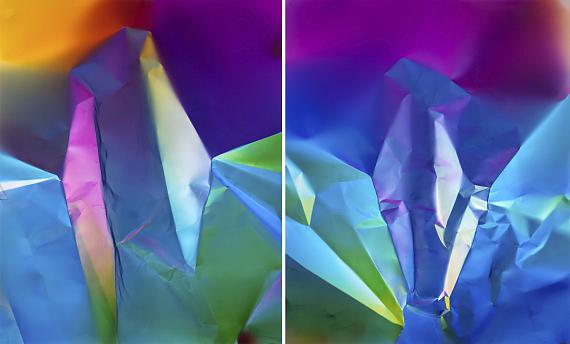
Dings & Shadows, 2021
color photogram
24 x 40 inches
Unique
The historic photogram re-named as ready-made adds to Carey’s handbook guide through photography’s nearly two centuries’ arc of light, photogram, colour and Polaroid. Photography Degree Zero (the artist's Polaroid practice) and Struck by Light (her darkroom practice) visually consult Talbot, Daguerre, and Anna Atkins, the powerhouse tripod of 19th century game changers. Talbot’s negative-to-positive duality of the photogram-as- image is doubled, while Daguerre is mirrored in the glossy polish of Polaroid’s pristine surface and crisp picture. Talbot’s soft-focus, non-color compositions in blurry outlines see light’s shadow while Prussian blue sees colour- as-light transformed in Anna Atkins’ cyanotype images.
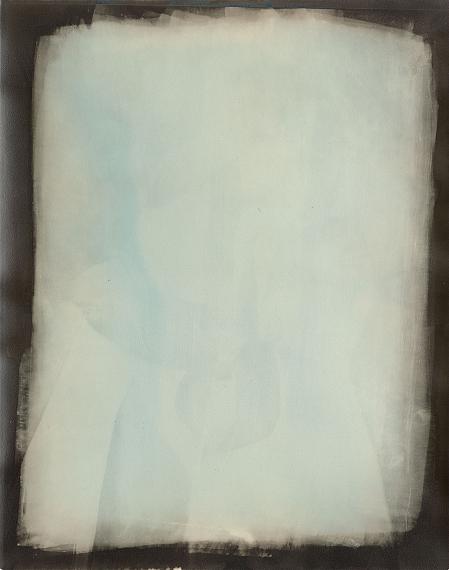
From the series Finitograms, 2022
10 x 8 inches
Unique
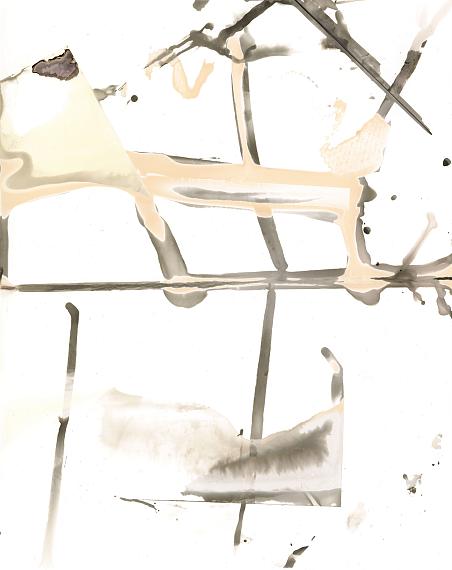
From the series Finitograms, 2022
10 x 8 inches
Unique